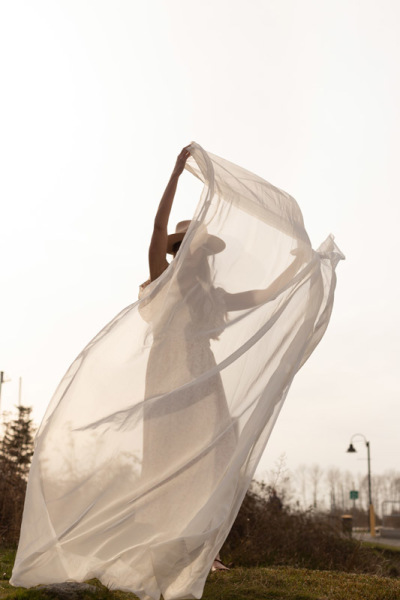
This morning, with the promise of discounted food, I download a couple of mega corporate apps. This is disastrous for about sixty minutes. I can practically feel them tracking my data, plotting how best to hook me on mediocre coffee and QR codes. I feel like I am doing something sacrilegious, morally bankrupt. I feel like someone who kicks puppies.
I then realize I am being quite neurotic and that it is 9 am, and it's a lovely day. I eat some cereal. I write an article to myself.
The problem with culture is that it is very easy to get it jumbled with morality. We like our morals, though we don't always admit it. We're always going on about should-be and shouldn't-be.
We carry vague homesickness for paradise, where we don't have to deal with bad because bad is not a threat. We want to be people for whom bad is not a threat, or at least pretend. One of the ways we do that is through legalism.
For me, that's purging anything that 'feels wrong'. Like if I avoid enough plastic, I can be perfect. For some, it's in retweeting the right things, writing the right captions, and using the right words. A lot of the time, it is ruminating on things you feel like you’ve done wrong. Like if you just sit and be miserable long enough, you’ll feel right again.
The problem is that these aren't real (moral) changes we are making; we are just editing our (cultural) surroundings to feel better about ourselves. It's so much easier to do this in a digital landscape, but we've been doing it since culture began.
“Your New Moon feasts and your appointed festivals
I hate with all my being.
They have become a burden to me;
I am weary of bearing them.
When you spread out your hands in prayer,
I hide my eyes from you;…
Your hands are full of blood!”
(Isaiah chapter 1, verses 14-15)
Tale as old as time: Carving idols of culture and calling it God’s will. Trying to self-vindicate without having to look too hard at ourselves. Again and again we take our cheap curtains and try to hang them in the temple. And in the process, we forget why there aren’t any.
The veil, torn down
When the Old Testament temple was built for the people of Israel, its purpose was for God to come live there because he loved them and wanted to. The problem was, people live in opposition to God’s nature by trying to be their own gods, so if they got too close, their spiritual sickness would blow some fuse, and they’d die (I’m not a theologian; I’m just giving you the gist).
God loved them and didn’t want that, so he ordered his presence be made separate with a veil. Thus the veil separated the sacred from the unsacred.
When Jesus, who was God, came to live with his people in human form, he lived in opposition to the people’s nature, and they killed him. Then the veil in the temple tore down. Basically, he’d sacrificed himself so the people wouldn’t have to die of spiritual sickness anymore. The sacred was no longer completely separated from the unsacred.
And then he resurrected, went away, and sent the Spirit, and the Spirit lit up every individual in the church forever, much like the original temple was lit up, which is very exciting.
There is a lot more to this, but I have a word limit and a deadline, and this isn’t a sermon.
Cheap curtain rods and determination
The point I want to get to is if you so choose, you become a little temple. No veil, no compartments. Your whole life becomes a sacred space. It’s not the career you choose, not the people you hang out with, not the apps you download. It’s you. And you don’t dictate where God does and does not go.
But we’re people, and we like to feel important. We are determined to install our cheap curtain rods between now and eternity.
So we over-identify with culture. We over-resist or over-succumb. Over-debate our traditions. Try to write self-righteous clauses into what has purposely been made simple and accessible. Ironically it’s easier to make up meaningless rules and restrictions than to live the life we’re called to.
“Wash and make yourselves clean…
Learn to do right; seek justice.
Defend the oppressed.
Take up the cause of the fatherless;
plead the case of the widow.”
(Isaiah chapter 1, verses 16-17)
I used to be pretty frantic about living out my bleeding-heart values. I felt like if I bought too many plastic bottles or didn’t act like I cared about the right things, some imaginary god of being a good person would come eat me. Or I’d get mobbed.
But I’ve been asking myself: Am I doing this because it’s Christlike, or do I just think it’s Christian-like? Am I doing this out of devotion or legalism? Kindness? Fear? Shame?
We are called to love God with our whole lives. We are also called to value others the same way we (ideally) value ourselves.
No curtains, no veil. No magic schedule. No blacklist of fast food chains. Just go.
It’s as simple and as difficult as that.

Eleesa Jensen is currently studying Psychology and Education at the University of Auckland. She loves to paint, play guitar, and write as a form of worship and to process her thoughts.